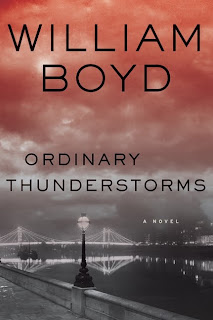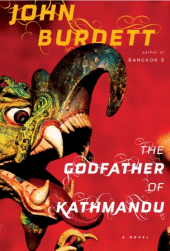John Wray
From a Q & A with John Wray about his novel, Lowboy:
You actually wrote this book on the subway. Why? What was that experience like?--Marshal Zeringue
My reasons for writing on the subway were simultaneously practical and romantic: I liked the idea of being in constant motion as I worked, and also, of course, of spending as much time as possible in the environment and under the conditions I waswriting about. But at the same time, I needed a place to work that was cut off from temptations like the Internet and the presence of my girlfriend, who works at home. Also, it only cost four dollars a day—two if I never left the subway!
It turned out to be harder than I’d thought to concentrate on the trains, and for the first few weeks I was also hampered by my self-consciousness, which almost approached stage fright on certain days. But there are scenes in Lowboy that would never have been written if I hadn’t found myself in certain MTA stations, and many of those are my favorites in the novel. Rockefeller Center, for some reason, was especially fertile ground, and so was the out-of-service old City Hall station on the 6 line, which I snuck into on several occasions.
Lowboy is a paranoid schizophrenic. How does one write about mental illness in novel? How do you get it right?
Attempting to inhabit the consciousness of a schizophrenic was without a doubt the most difficult thing I’ve ever tried in fiction. I was helped, to some degree, by the fact that I’ve always been interested in mental illness, and by the fact that I’ve come into close contact, in my life, with both schizophrenia and manic depressive disorder; but writing from the point of view of a sufferer—and, above all, writing in a way that neither reduced the condition to a set of clinical symptoms, nor amplified it into the kind of caricatures of insanity that are so rampant in our culture—was a...[read on]

































